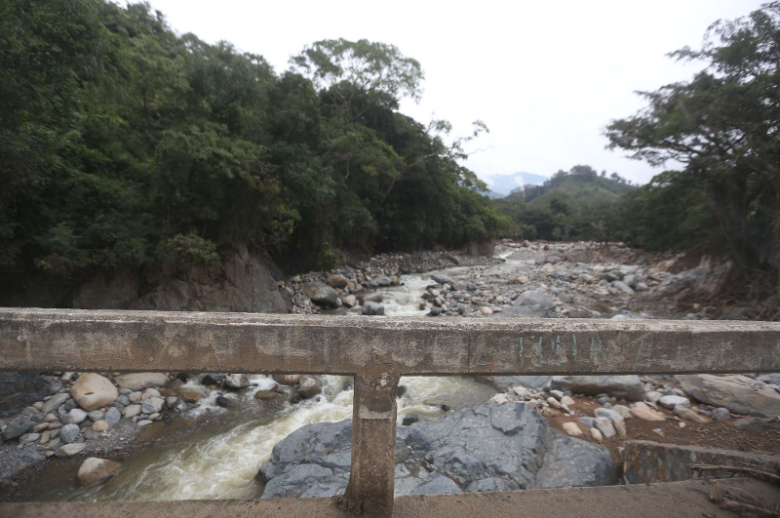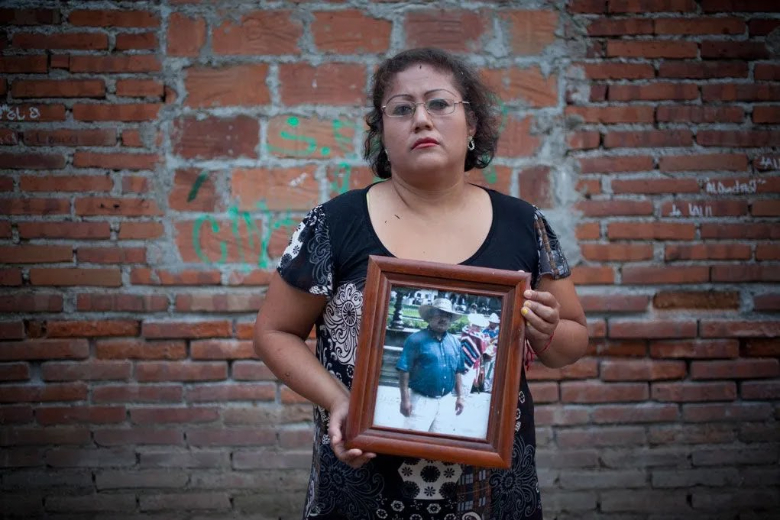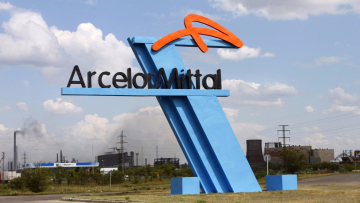“ING, don’t look away in Mexico. We have to pay for our protest with our lives.”
ING Fossielvrij, info@fossielvrij.nl

ING Fossielvrij, info@fossielvrij.nl
- Send an email to ING -
It makes him restless to be so far from home, says Juan (not his real name for his safety). It is April 2024, and he’s in Amsterdam to draw attention to the disastrous impact of steel company ArcelorMittal on his family and his community in Ayotitlán, Mexico, during the ING shareholders' meeting. His journey is necessary, but also stressful. At home, family members and neighbours are constantly in danger, and as a father and leader in his community, he feels responsible for them. What will happen to them while he is gone? Yet, in the end, his conviction is stronger: ING must hear his story so that it can stop providing financial services to ArcelorMittal.
Mining in Nahua land
Juan lives in the Sierra de Manantlán, a mountainous, forested area in southern Mexico. Pumas, jaguars and many other rare species live there. People have also lived there for thousands of years: Nahua communities spread out over small villages. “And there are many minerals in the soil,” says Juan. "As Nahua, we have long had to deal with outsiders stealing our raw materials. A lot of forest has been cut down and in 1974 the Peña Colorada iron ore mine was built. Entire hilltops have been destroyed and excavated in recent decades, and several villages have disappeared. And the mine is still expanding.”

Mining activities have also completely disrupted the water management in the area. “The forested mountains always provided evaporation and therefore rain, but that system has been disrupted. Two of our four important water streams have now dried up. The water that we still have is polluted by the mine. People in the entire area are afraid. Soon, we may no longer have water to give our crops, our animals and ourselves to drink.”
The Peña Colorada Mine
Peña Colorada is the largest iron ore mine in Mexico and has been owned by steel companies ArcelorMittal and Ternium since 2005. ING is mainly involved in the mine through the former. The bank currently has almost half a billion dollars in loans outstanding with ArcelorMittal. In addition, it has issued guarantees for another half a billion dollars in bonds in recent years. (1) ArcelorMittal is free to spend this money on Peña Colorada and all their other polluting activities.
Fighting for justice for generations
The high price of activism
Juan says that ArcelorMittal and Ternium have also collaborated with organized crime in recent years. “They have gained more and more power in Ayotitlán and have also started illegal mining themselves. Since then, several activists have disappeared or been murdered.” In 2012, Celedonio Monroy Prudencio disappeared after months of threats and has never been heard from again. He was a lawyer who tried to secure the rights of the local community against the steel companies. (5) In April 2021, José Santos Isaac Chávez was found dead, with signs of torture. He was a candidate for an important political position and a strong opponent of mining. (6) A few months later, one of his supporters, Javier Contreras González, was murdered. (7) And in November 2023, another political candidate, Higinio Trinidad de la Cruz, disappeared after an appointment at the town hall. His body was found a day later. (8)

Juan himself has also lost a loved one. “My family has always been committed to preserving our community and our traditions. I have been an environmental activist and human rights activist for many years. At home with my children, I always spoke very openly about everything that was wrong in our community. My son picked that up at a young age. At 18, he started to speak to local leaders about corruption and their close ties with the mining companies. A few years ago, he was murdered.
Sometimes I wonder if I did the right thing by raising him so consciously. Because now he is dead… We pay for our fight for justice with our own blood.”
ArcelorMittal and ING refuse to take responsibility
Are the mining companies or their employees directly involved in the murders and disappearances in Ayotitlán? This cannot be independently investigated. ArcelorMittal and Ternium do not allow researchers onto their territory, and their power in Ayotitlán is great. (9) What is clear is that the combination of a disadvantaged indigenous population, organised crime and a state that cannot or will not do enough to combat it, forms a toxic mix in which such atrocities go unpunished.
International organizations therefore argue that large-scale mining activities should not take place in areas with high levels of violence, such as this part of Mexico, because the risk of worsening the violence is too great. (10)
In June 2024, Reclaim Finance, BankTrack, SteelWatch and the Fair Steel Coalition raised the alarm about human rights violations by ArcelorMittal to its financiers. They call on the company to independently investigate the deaths of activists, including Juan's son. (11) The organizations also sent a letter to ING and 19 other major banks about the abuses at ArcelorMittal. These are not limited to Mexico: there is also an alarming pattern of violence against activists, poor working conditions and health problems for the local population in Liberia, South Africa and Brazil. (12)
ING does not take these concerns seriously at all. Instead of taking responsibility, the bank comes up with an unclear response: it does not say anything about its relationship with ArcelorMittal and only refer to general guidelines. (13)
Working together for change
During the ING shareholders meeting in May 2024, Juan spoke through an interpreter. He asked whether ING would push for an independant investigation into whether it's financing for ArcelorMittal is in line with it's own standards for ecologically responsible banking and human rights. In doing so, ING must pay special attention to the voices of local communities and NGOs, because they are at risk of being silenced by the violence and threats.
ING's response was unsatisfactory. It tried to make its involvement in the situation in Ayotitlán seem as small as possible. ING emphasizes that it does not finance the mine directly and is therefore "not involved". It does confirm that ArcelorMittal is its client. It says it adheres to its standards, without further explanation. And since the shareholders' meeting, it even provided a new multi-million loan to ArcelorMittal.
Juan has gained some hope from the international attention. “At home, I am committed to restoring traditional leadership structures and organizing groups where concerned residents can come together. But I also think it is important to get in touch with people outside Mexico. We really need their help, for example to put pressure on ING and other financiers. ING has now listened to our concerns, but there will not be enough real action. More pressure is needed for that.
My dream is that the next generations in Ayotitlán will have more justice. I want them to be able to live without fear, in peace and freedom. ”
Let's stand with Juan. Send an email to ING now to demand action. ING must make clear how it is going to address the human rights violations by ArcelorMittal. You can send an email with one click:
- Send an email to ING -
Sources
- BankTrack, information about financing to ArcelorMittal.
- Steelwatch, Climate report on ArcelorMittal ; Article Metaalnieuws.nl 'ArcelorMittal postpones green investments'.
- Spanish-language article about the abuses in the Sierra de Manantlán: 'Sierra de Manantlán: territory indígena marcado por la minería de hierro y el narcotráfico'.
- Fair Steel Coalition report, 'The real cost of steel'.
- See 3, article about the abuses in the Sierra de Manantlán.
- Global Witness report on murdered activists.
- See 3, article about the abuses in the Sierra de Manantlán.
- Spanish language press release about the murder of Higinio Trinidad de la Cruz.
- See 1, BankTrack information.
- See 8, press release on the murder of Higinio Trinidad de la Cruz.
- See 4, Steelwatch report.
- Letter to banks about misconduct at ArcelorMittal, June 2024.
- Banks' response to letter about misconduct at ArcelorMittal, June 2024.
Read more
Juan's story is not unique. With our ING Fossil Free Storytelling group we investigate the impact of ING's fossil billions. Read more here:
-
Guyana: from Carbon Sink to Carbon Bomb (thanks in part to ING)
- “ING, come to Ghana and see what your money does”
This story was originally published in Dutch on Fossielvrij's website here.

